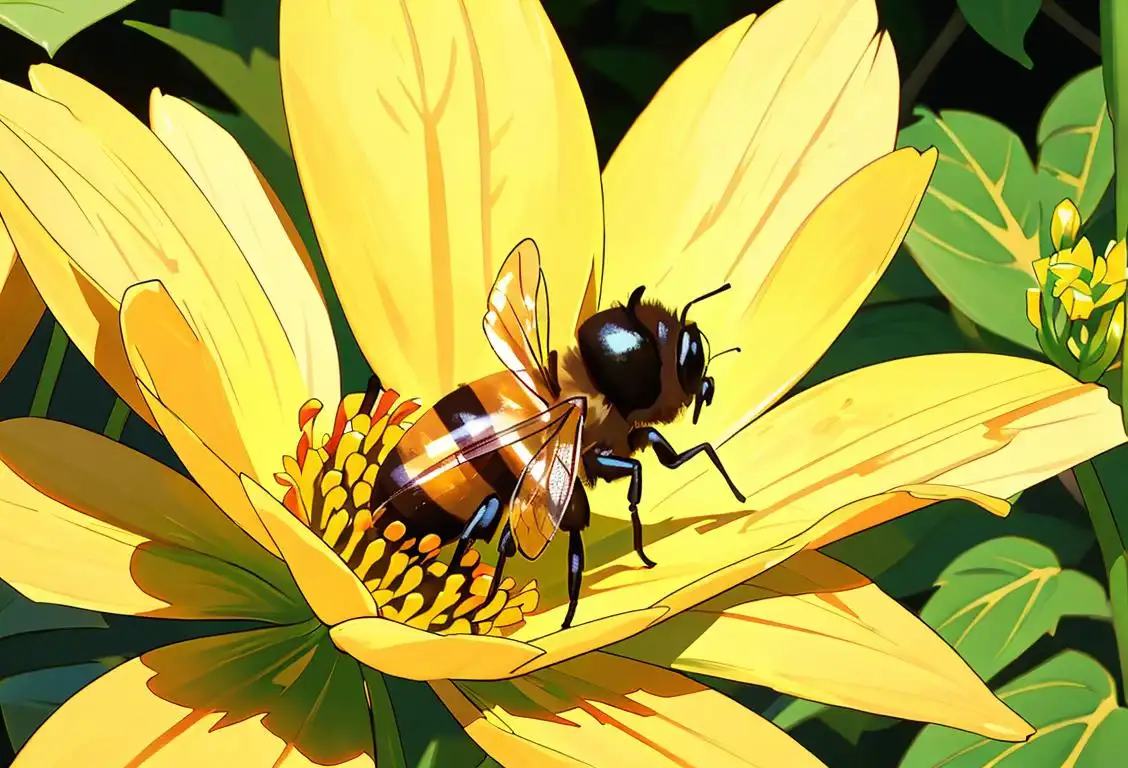National Honeybee Day

Hey there, honeybee enthusiasts! Are you ready to buzz with excitement? Because it's time to celebrate National Honeybee Day!
When is Honeybee Day?
It's national honeybee day on the 20th August.
The Buzz About National Honeybee Day
Prepare to don your beekeeping suits and get ready for a swarm of sweet festivities! National Honeybee Day is a buzzing celebration dedicated to our beloved pollinators, the honeybees. These little creatures play a vital role in our ecosystem, buzzing from flower to flower to collect nectar and pollen, all while pollinating our plants and crops.
What's the big deal about bees, you ask? Well, my friend, they are responsible for pollinating about one-third of the world's crops, including fruits, vegetables, and nuts. Without them, our plates would be quite empty, and we would have to say goodbye to avocado toast and peanut butter sandwiches. So, give a little honeybee gratitude the next time you enjoy nature's bounty!
The Honeybee Dance
Did you know that honeybees communicate through dance moves? That's right! They do a little wiggle dance to let their hive mates know the location of food sources. It's like a waggle dance party, complete with the latest bee boogie moves.
So, the next time you see a honeybee grooving around the garden, remember that they are not just dancing for fun (although they do have quite the rhythm), but they are actually passing on important information to their friends. Talk about bee-yond cool!
History behind the term 'Honeybee'
45 million years ago
Emergence of honeybees
During the Eocene epoch, honeybees emerged and began to populate the Earth. Fossil evidence shows that early honeybees were similar to modern species and had already developed important features like a proboscis, which enabled them to extract nectar and pollen from flowers.
2400 BCE
Ancient beekeeping
Beekeeping practices started to develop in ancient Egypt, as depicted in hieroglyphs and artwork from this time. Egyptians recognized the value of honey and the important role played by honeybees in pollination, considering them sacred creatures. They housed bees in purpose-built hives made from clay or straw.
350 BCE
Aristotle's observations
Aristotle, the Greek philosopher and polymath, made detailed observations and documented key aspects of honeybee biology and behavior. His work laid the foundation for future understanding of honeybees, including their reproduction, communication, and hive organization.
1609
First scientific description
François Huber, a Swiss naturalist, conducted extensive studies on honeybees and discovered many important aspects of their biology, such as their reproductive behavior, the role of the queen, and the organization of the hive. He published his findings in the book 'Nouvelles Observations sur les Abeilles' (New Observations on Bees).
1853
Discovery of worker bees' sex
Jan Dzierżon, a Polish apiarist, conducted experiments and made the groundbreaking discovery that worker honeybees were females. Previously, it was believed that worker bees were undeveloped males. Dzierżon's work significantly advanced the understanding of honeybee biology and reproduction.
1997
Genetic analysis reveals honeybee origins
Using advanced genetic analysis techniques, scientists determined that honeybees originated in Africa. Furthermore, they found that European honeybees, commonly used in modern beekeeping, are descendants of a subspecies from the Middle East. This understanding of the honeybee's genetic lineage provides insights into their adaptations and diversity.
Did you know?
Did you know that honeybees communicate through dance moves?Tagged
awareness funFirst identified
15th August 2015Most mentioned on
20th August 2018Total mentions
1316Other days
Nurses Day
Former Prisoner Of War Recognition Day
Press Day
Handloom Day
Heroes Day
Memorial Day
Dance Day
Bestfriends Day
Liberation Day
Love Your Pet Day









